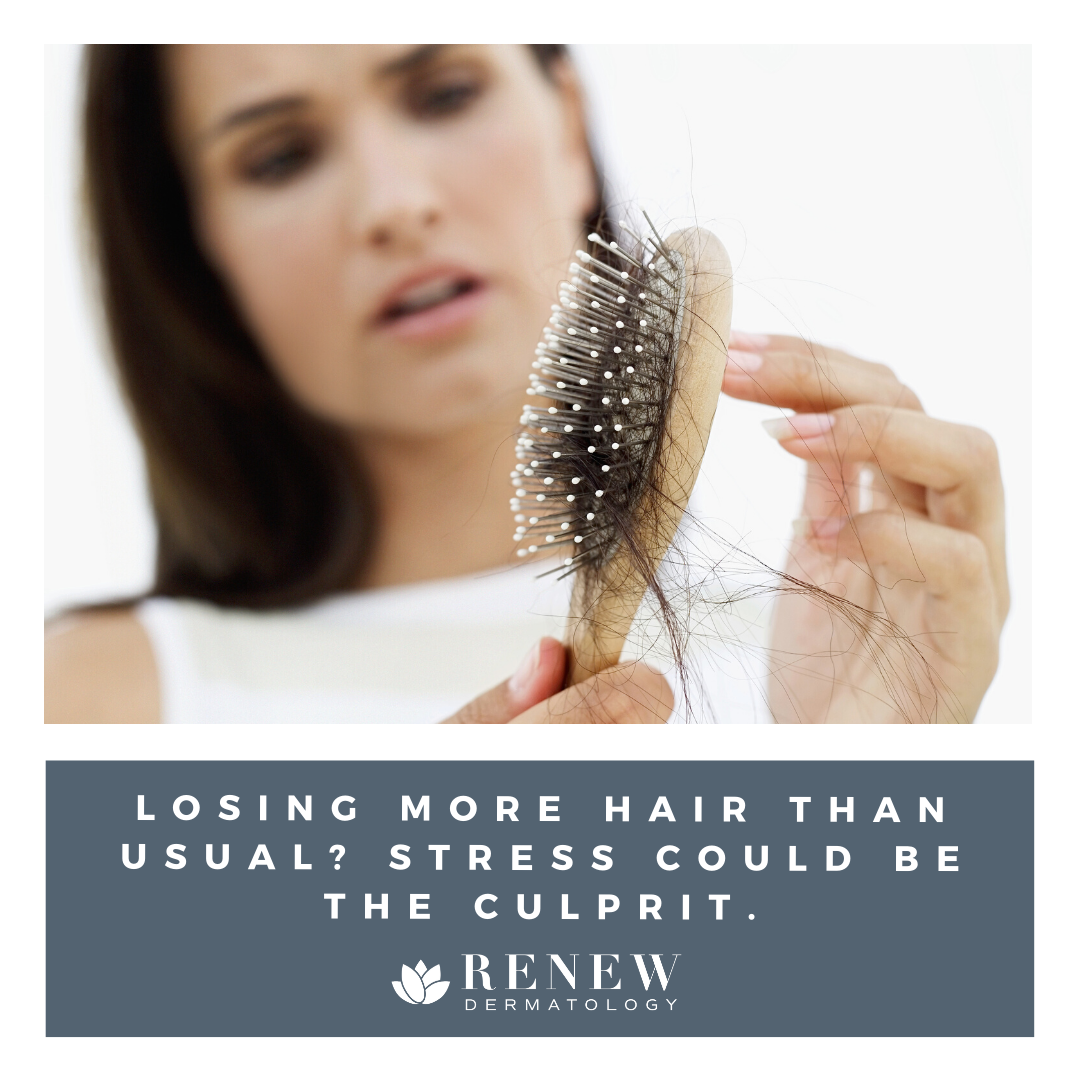Losing more hair than usual? Stress could be the culprit. Since the start of this pandemic, the “unprecedented” and “trying” times have felt endless. Routines have been disrupted, safety has been compromised, and conflicting data is found wherever we look for answers.
There is a type of diffuse (non-patterned) hair loss that sometimes occurs after stressful events called telogen effluvium. Hair loss will typically start to present about 8-12 weeks after the event but the timeline can vary case to case. Common stressors that trigger this hair loss include pregnancy, surgery, an illness (typically with a fever), or psychological stressors. A person with this type of hair loss would experience higher volumes of hair coming out in the shower, on hair brushes, or just running their fingers through their hair. The good news is that it is self limiting and most often does not require any treatment. The hair loss will slow down on its own if the stressor is removed or managed. This takes time though (up to 6 months to a year), so patience is key.
If you want to speed up recovery, make sure you are eating a diet rich in nutrients and consider taking a proven hair growth supplement called Viviscal. For chronic hair loss there are even procedures that are available to stimulate more hair follicles.
Most importantly, keep stress under control during these days by exercising, eating well, and getting enough sleep. Find joy in small things each day. For me, it was putting on my favorite summer outfit even if it was only to walk around my house in it for a few hours. For others, turning on a recording of a favorite football game while wearing their team’s jersey and eating wings could help bring about good memories and create joy.
Wishing you all the best and hoping for everyone’s hair to stay where it belongs- in the scalp. Caroline Wilson CRNP
See the CDC’s website for more examples on how to manage stress during COVID-19.
https://www.cdc.gov/coronavirus/2019-ncov/daily-life-coping/managing-stress-anxiety.html


